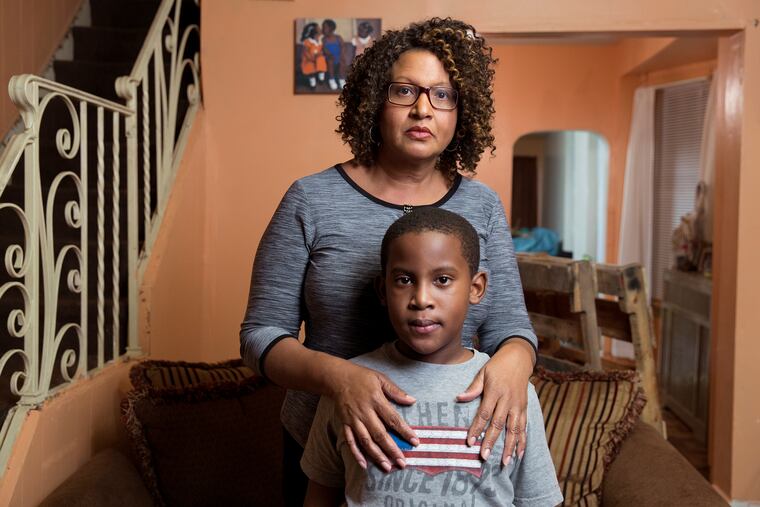The test Philadelphia can’t afford to fail | Opinion
Considering the lifelong consequences those impacted by childhood lead poisoning, we're not doing enough to prevent it in this toxic city.

Considering the lifelong consequences for those affected by childhood lead poisoning, we're not doing enough to prevent it in this toxic city.
The consequences include the significant cost of care to support afflicted children with special education services and medical care. Poisoned children also have higher rates of juvenile offenses and lower rates of high school graduation and diminished lifetime earnings.
This preventable injury has no cure. It's a life sentence.
We all know about the travesty that occurred in Flint, Mich., with significant numbers of children poisoned by lead. What most people don't know is that three times more children are poisoned by lead in Philadelphia than in Flint. Yes, you read that correctly.
Every year, 2,700 Philadelphia children are diagnosed with lead poisoning — mostly under the age of 3 and mostly poor minority kids. The vast majority are poisoned by lead-based paint in their older homes that deteriorates on windows and walls due to wear and tear and delayed maintenance. And Philadelphia has a lot of old houses; 90 percent of the housing stock in the city was built before 1978, the year lead paint was banned.
Most Philadelphia children are poisoned in rental properties. Since the paint in their rental homes is making babies and toddlers sick, the solution is simple. Find lead-contaminated houses and get the lead out.
In 2011, City Council passed an ordinance requiring lead paint testing and certification of properties built before 1978 to be rented to tenants with children 6 or younger.
Leading up to the ordinance, advocates and the city worked to increase awareness of how devastating toxic lead exposure is for very young children, with the tragic consequences of poisoning lasting a lifetime.
But as concerned as we were then, the outcome of the Lead Disclosure Law has fallen short of what we all intended.
Many landlords have been conscientious and complied with the law, but most have not. As of January 2018, landlords have only submitted 4,418 certificates for an estimated 26,000 rental units subject to the law. Unfortunately, the law has turned out to be largely unenforceable.
There is no record of tenants' ages, so there is no way to identify pre-1978 properties rented to families with small children. The city does not know which landlords are out of compliance, leaving children at risk of harm. And it's not that there should there be a record of tenants' ages — out of concern that this could fuel discrimination against families with young kids.
To address the law's shortcomings, the Mayor's Advisory Group on Lead Poisoning recommends improving the law's enforceability by requiring all pre-1978 rental properties to comply, not just those with residents under 6.
After all, making sure rental properties are safe for children, at a couple hundred dollars a test, should be considered just the cost of doing business.
Many of the landlords we've spoken with who have tested their properties say the process is not painful, and they understand young tenants must be protected.
Most people agree that vaccinating children is an essential and worthwhile public health strategy with a sizable return on investment of $5.30 to $16.50 for every dollar spent. Every dollar spent to remediate lead paint hazards in housing yields an even greater return on investment of $17 to $221.
Childhood lead poisoning disrupts the chance at a healthy and productive life for many young children in Philadelphia. To ensure that all children are protected from serious injury by lead poisoning, we must make the law more enforceable and expand it to all pre-1978 rental units.
This is the only way to be sure that all children and babies living in rental properties are protected from the harms of lead-based paint. City Council must change the law with the great urgency this health crisis demands, especially because we know full well the penalty that inaction exacts.
Every day we delay in this long overdue measure, seven more children and their families receive a life sentence that could easily be prevented.
Donna Cooper is executive director of Public Citizens for Children and Youth. Phil Lord is executive director of the Tenant Union Representative Network.